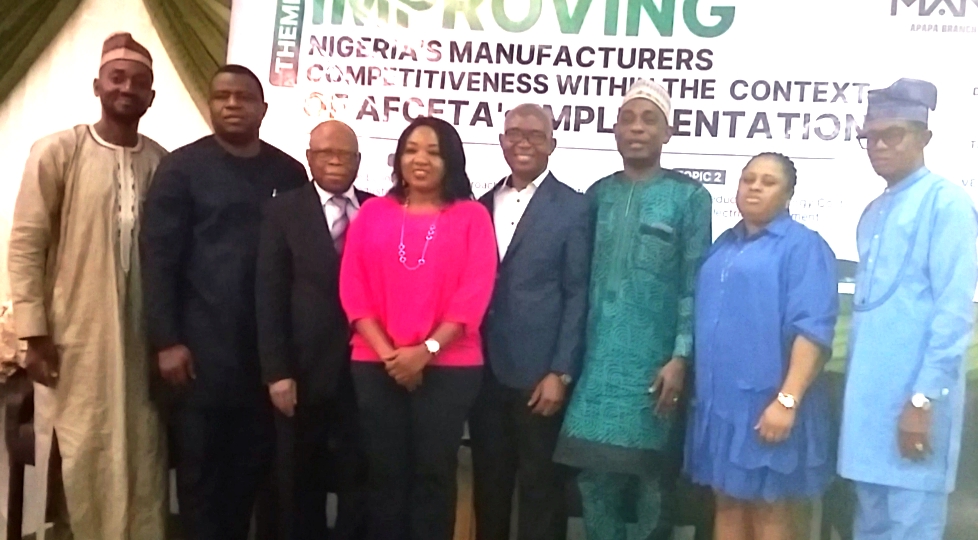The Manufacturers Association of Nigeria (MAN) has tasked the Federal Government to speedily commence the implementation of the African Continental Free Trade Area (AfCFTA) to support its industrialisation agenda and for competitiveness.
The President of MAN, Mr Mansur Ahmed, gave the charge at the 11th Business Luncheon of the Apapa Branch Council of MAN, yesterday in Lagos.
The event had as its theme: “Improving Nigeria’s Manufacturers Competitiveness Within the Context of AFCFTA’s Implementation.”
Ahmed said the call became pertinent because the nation was not currently competitive enough to fully maximise and harness the benefits of the AfCFTA.
Ahmed, who was represented by the association’s Ikeja Branch Chairman, Mr Robert Ugboaja, said the reasons making the nation lack the competitiveness included lack of infrastructure such as electricity and the cost of money.
He said manufacturers in other countries, such as South Africa, already had some infrastructure including broadband, gas and electricity unlike in Nigeria.
“Almost all manufacturers have to provide their own electricity. To provide electricity, they have to buy generators and fuel them.
“A company here will have to generate it’s own water and pay government for generating the water,” he said.
Ahmed added that the nation need to look beyond the ease of doing business and tackle interest and exchange rates challenges.
“There is no way any of our manufacturers can source 100 per cent of their inputs locally. There are still some things that need to be imported,” he said.
The president said the association would continue its advocacy to ensure that the cost of doing business was reduced.
The Chairman of MAN, Apapa branch, Mr Frank Onyebu, also called on the Lagos State Government as the country’s number one commercial hub to work with the Federal Government to ensure the success of the AfCFTA implementation.
Onyebu added that the design of the AfCFTA reflected an explicit commitment to creating a framework for deeper socioeconomic integration that would enable trade, investment and mobility of people.
He urged manufacturers to embrace innovations, review their processes and re-strategise to aid their production mode and compete favourably in markets.
“There can be no sustainable industrial development without an efficient and sustainable energy system,” he said.

